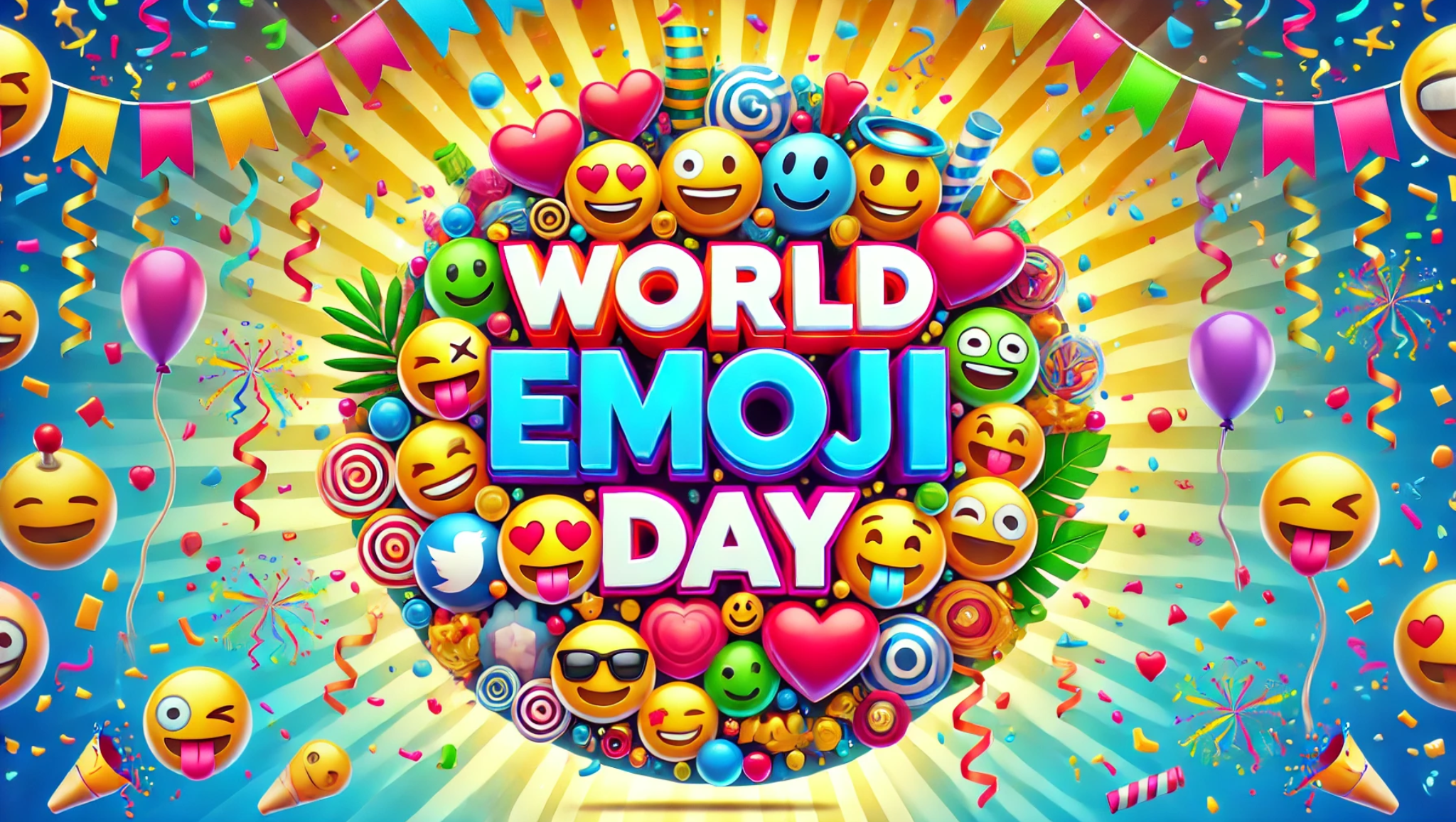World Emoji Day, celebrated annually on July 17, is a day dedicated to the popular pictograms known as emojis. The date was chosen because Apple’s calendar emoji displays July 17 📅, marking the introduction of its iCal application in 2002. The day was created by Jeremy Burge, who is also the founder of Emojipedia.
Emojis originated in 1999 in Japan when Shigetaka Kurita created 176 simple icons for NTT DoCoMo’s pager system to convey information and emotions concisely. Before emojis, people used emoticons, like :-/ and :-D, made from keyboard characters to express emotions in text. Emojis gained popularity in Japan and were eventually standardized globally in 2010 when the Unicode Consortium included them in the Unicode Standard, enabling universal recognition across platforms. Apple added an emoji keyboard to iOS in 2011, and Android soon followed, making emojis widely accessible. Since then, emojis have evolved to encompass a wide array of expressions, objects, and symbols, including diverse skin tones and cultural representations.
Since its inception in 2014, World Emoji Day has gained significant traction, with notable participation from major corporations. Apple uses the day to announce new emojis coming to iOS, while Google has updated its calendar emoji to reflect the July 17 date on Android, Gmail, Hangouts, and ChromeOS. Pepsi once launched “PepsiMoji,” an emoji keyboard and themed Pepsi cans and bottles, and Sony Pictures Animation has used the occasion to announce cast members for “The Emoji Movie.”
Various other companies have joined the celebrations. Xbox, Prime Video, Paralympics, and KitKat have all made announcements related to emojis. The Royal Opera House in London has even presented operas and ballets in emoji form.
Meanwhile, the New York Stock Exchange has incorporated World Emoji Day into its events, and the Empire State Building has been lit in emoji yellow in honor of the day.
World Emoji Day has also been a platform for social and cultural commentary. In 2018, Facebook announced that “700 million emojis are used in Facebook posts each day.” In 2017, the first World Emoji Awards were launched, and since then, awards have been given for the most popular new emoji each year.
The day has even seen world records, such as Sony Pictures’ largest gathering of people dressed as emojis where 531 fans donned yellow emoji costumes at simultaneous events across Dubai, Moscow, London, Dublin, and Sao Paulo.
Public figures and organizations have also embraced World Emoji Day. In 2018, Kim Kardashian introduced her Kimoji fragrance collection on World Emoji Day. Kimoji was a popular smartphone application featuring pictograms themed around Kim Kardashian. It became a best-seller on the Apple App Store and led to the creation of numerous celebrity emoji apps.
In 2017, US House Speaker Paul Ryan’s video about his love for emojis drew significant attention, while New Zealand promoted the idea of a kiwi emoji.
Events have included star-studded red carpets and significant cultural contributions like the off-Broadway premiere of the musical “Emojiland.” Museums have also participated, with exhibitions on the history and impact of emojis, showcasing their evolution from simple emoticons to complex symbols of digital communication.
World Emoji Day is more than just a celebration of digital pictograms; it’s a reflection of their profound influence on our communication, culture, and society. From tech giants unveiling new emojis to significant cultural events and world records, the day underscores the universal appeal and significance of emojis. As emojis continue to evolve, they offer an inclusive and expressive language that transcends borders, bringing people together in a shared digital experience. Whether through a simple smiley face or a complex narrative told through a series of icons, emojis have cemented their place in the modern lexicon, making World Emoji Day a celebration worth marking on our calendars.
